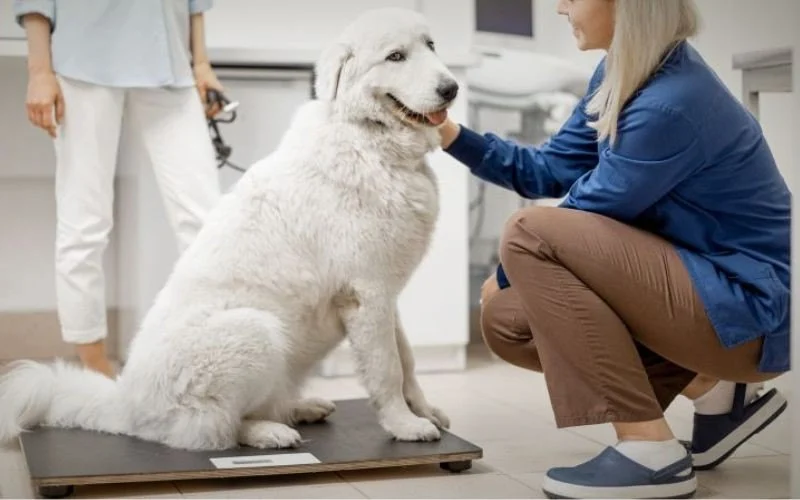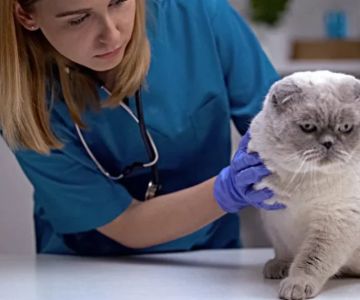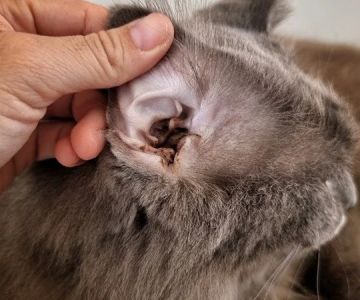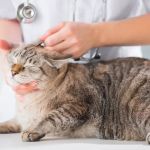
1. Introduction: The Importance of Monitoring Pet Weight
As a pet owner, ensuring your furry friend’s health and well-being is a top priority. One of the most important aspects of keeping your pet healthy is maintaining a healthy weight. Just like humans, pets can suffer from health issues related to being overweight or underweight. Monitoring your pet's weight regularly is crucial to catch potential health problems early on and help them live a long, happy life. In this guide, we’ll explore the best tools and strategies for monitoring your pet’s weight effectively.

Midwestern University Companion Animal Clinic
GlendaleMaricopa CountyArizona
5715 W Utopia Rd, Glendale, AZ 85308, USA
2. Why Monitoring Pet Weight Matters
Weight is one of the most direct indicators of a pet's overall health. An unhealthy weight can lead to a variety of issues, including:
- Joint problems
- Heart disease
- Diabetes
- Shorter lifespan
- Reduced mobility and energy
Keeping track of your pet's weight can help you identify changes early, enabling you to adjust their diet or exercise routine before more serious health issues arise.

Chandler Small Animal Clinic
ChandlerMaricopa CountyArizona
1286 W Chandler Blvd, Chandler, AZ 85224, USA
3. Tools for Monitoring Pet Weight
There are a variety of tools and resources available to help you keep an eye on your pet’s weight. Here are some of the most effective options:
3.1. Regular Vet Visits
One of the best ways to monitor your pet's weight is by scheduling regular check-ups with your vet. During these visits, your vet will weigh your pet and check for any signs of obesity or malnutrition. They can also give you tailored advice on how to maintain your pet’s ideal weight.
3.2. Pet Scales
At-home pet scales are an excellent tool for tracking your pet’s weight between vet visits. These scales are designed to accommodate pets of all sizes, and many models provide an accurate reading for even the smallest pets. Regularly weighing your pet can help you catch any weight changes early.
3.3. Weight Tracking Apps
There are several apps available that allow you to track your pet’s weight and health metrics. These apps can send reminders for weigh-ins, log food intake, and even give you insights into how your pet’s weight compares to recommended standards. Some apps also include tools for tracking your pet's exercise levels.
3.4. Body Condition Scoring (BCS)
In addition to using tools like scales, body condition scoring is a method that helps assess your pet’s weight based on physical appearance. Vets often use BCS to evaluate a pet’s overall condition by checking their ribs, waist, and abdominal area. By following this method at home, you can get a more subjective, hands-on sense of whether your pet is at a healthy weight.
4. Strategies for Maintaining a Healthy Pet Weight
Once you've started monitoring your pet’s weight, it’s important to adopt effective strategies to keep it in check. Here are some helpful tips for maintaining a healthy weight for your pet:
4.1. Proper Diet and Portion Control
Diet plays a crucial role in your pet’s weight management. Feeding your pet the right type of food in the right portions is essential. Look for pet food that is formulated for your pet’s age, size, and activity level. Be sure to follow the recommended feeding guidelines and avoid overfeeding, as extra calories can lead to weight gain. You may also want to consult with your vet for advice on adjusting your pet’s food for optimal weight management.
4.2. Regular Exercise and Activity
Just like humans, pets need regular exercise to stay fit and healthy. Depending on your pet’s breed and energy level, different types of exercise may be appropriate. For dogs, daily walks and playtime can help maintain a healthy weight. Cats, on the other hand, benefit from interactive toys and climbing structures that encourage movement. Make exercise a fun part of your pet’s daily routine.
4.3. Avoiding Treat Overload
Pet treats are a great way to reward your pet, but they can quickly add up in terms of calories. Limit the number of treats you give and make sure they are healthy options. Consider using low-calorie treats or incorporating your pet's regular food into training sessions as an alternative. This will help avoid unnecessary weight gain.
4.4. Consult with Your Vet About Weight Loss Plans
If your pet is overweight or underweight, it’s important to work with your vet to create a tailored weight loss or gain plan. Your vet can help you set realistic weight goals and provide guidance on diet and exercise. They may also recommend specialized food or supplements to help your pet reach their optimal weight.
5. Real-Life Example: A Success Story
Meet Max, a golden retriever who was slowly gaining weight after being adopted. Max's owner, Sarah, noticed that he seemed less active and had difficulty keeping up with his usual walks. After consulting with her vet, Sarah began monitoring Max’s weight using a pet scale at home, tracked his food intake with a weight tracking app, and made adjustments to his diet and exercise routine. Within a few months, Max had shed the excess pounds and was back to his playful, energetic self. The vet was impressed with his progress, and Sarah was happy to see Max healthier and more active.
6. Conclusion: Keep Your Pet Healthy and Happy
Monitoring your pet's weight is an essential part of being a responsible pet owner. With the right tools, strategies, and professional guidance, you can help your pet maintain a healthy weight and improve their overall well-being. Whether it’s using a pet scale, tracking with an app, or following a proper diet and exercise routine, these small changes can make a big difference in your pet’s health. For expert advice, products, and services related to pet care, visit Pet & Puppy for everything you need to keep your pet happy and healthy.







 Animal Hospital-Nicholasville: Fox Julie DVM4.0 (33 reviews)
Animal Hospital-Nicholasville: Fox Julie DVM4.0 (33 reviews) Dayton Humane Veterinary Hospital4.0 (147 reviews)
Dayton Humane Veterinary Hospital4.0 (147 reviews) Banfield Pet Hospital4.0 (180 reviews)
Banfield Pet Hospital4.0 (180 reviews) Petco4.0 (485 reviews)
Petco4.0 (485 reviews) North Kenilworth Veterinary Care4.0 (587 reviews)
North Kenilworth Veterinary Care4.0 (587 reviews) Banfield Pet Hospital3.0 (202 reviews)
Banfield Pet Hospital3.0 (202 reviews) The Impact of Diet on Pet Skin & Coat Health: How Nutrition Influences Fur Quality
The Impact of Diet on Pet Skin & Coat Health: How Nutrition Influences Fur Quality Natural Remedies vs Vet Treatments: Making the Right Choice for Your Pet
Natural Remedies vs Vet Treatments: Making the Right Choice for Your Pet How to Teach Your Pet to Sleep on Their Own Bed
How to Teach Your Pet to Sleep on Their Own Bed Why Some Pets Reject New Food & How to Smooth the Transition
Why Some Pets Reject New Food & How to Smooth the Transition DIY Frozen Treats for Pets: Recipes & Safety Tips
DIY Frozen Treats for Pets: Recipes & Safety Tips How to Handle Pet Loss: Grieving, Supports & Memorial Ideas for Pet Owners
How to Handle Pet Loss: Grieving, Supports & Memorial Ideas for Pet Owners